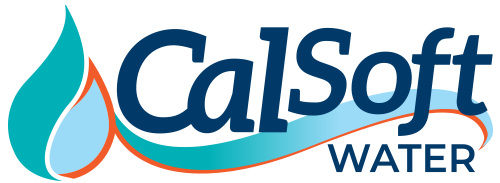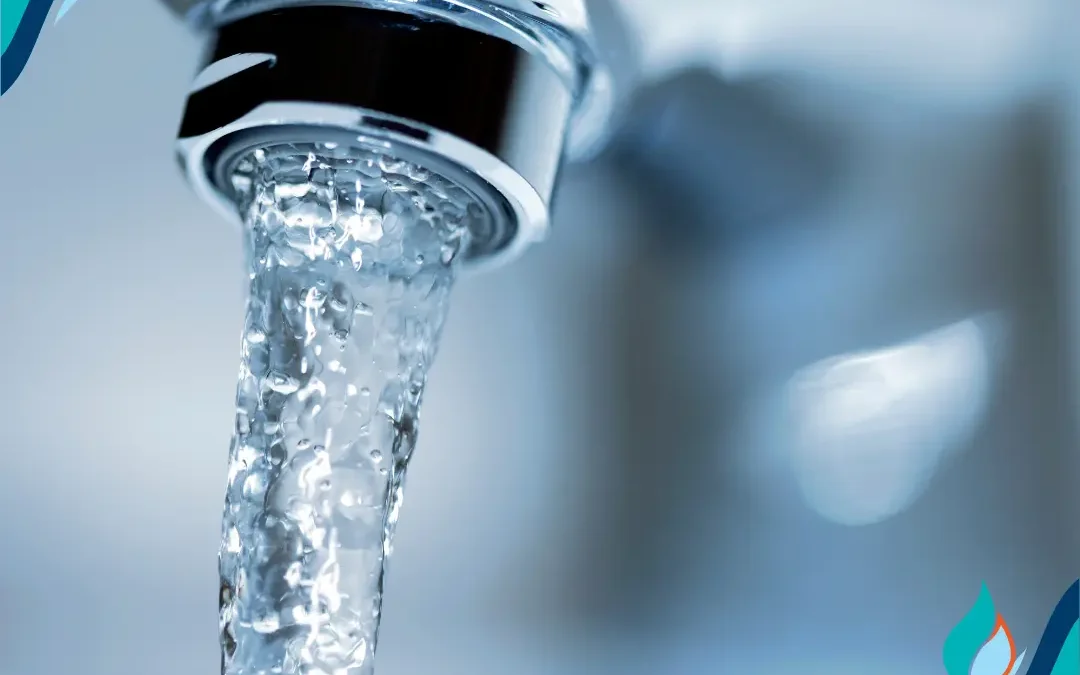Are you tired of dealing with hard water problems in your home? The right residential water softener company can help you understand the different types of water softeners so that you can make an informed decision. There are several kinds of water softeners available on the market, each with their own unique benefits and considerations.
We’ve created this comprehensive guide to help you choose the water treatment solution that best fits the needs of your household. Don’t worry, there is a water softener solution for everyone! Read on to learn more about our revolutionary portable exchange tank and soft water service, the preferred eco-friendly alternative for those with water-usage restrictions.
How Can Hard Water Affect Your Plumbing and Appliances?
Before we get into the types of water softeners available, let’s talk about why hard water is such a problem in the first place. Hard water, though not dangerous to health, can be quite a nuisance when it comes to maintaining your home. Here’s how it can impact your plumbing and appliances:
Impact on Plumbing
- Reduced Water Flow: The minerals in hard water, such as calcium and magnesium, can accumulate as scale inside pipes. This build-up narrows the diameter of the pipes, leading to decreased water pressure.
- Clogged Fixtures: Faucets and showerheads can become blocked by mineral deposits over time. This not only affects water flow but can also result in costly repairs or replacements if the clogs become severe.
Damage to Appliances
- Water Heaters: Hardened mineral deposits can form at the bottom of water heaters, reducing efficiency and increasing energy bills. Over time, this can lead to premature appliance failure, cutting short the lifespan of your heater.
- Shortened Appliance Lifespan: Devices like dishwashers and washing machines also suffer. The accumulation of mineral residue can cause them to work harder than normal, leading to frequent breakdowns or the need for early replacement.
- Increased Maintenance Costs: Constant battles with mineral deposits may require you to purchase special cleaning products or schedule regular professional maintenance, adding to your household expenses.
Addressing the issue of hard water by considering different types of water softeners or other treatments can extend the life of your plumbing system and appliances, while also improving their efficiency.
How Can Softened Water Benefit Your Household Beyond Plumbing Protection?
Making the switch to soft water offers a range of benefits that extend beyond simply safeguarding your plumbing system. Here’s how it can enhance your everyday life:
- Efficiency in Cleaning: You’ll find yourself using less detergent and soap, thanks to the improved lathering capabilities of softened water. This means laundry detergent and dish soap go further, potentially saving you money on these household essentials.
- Enhanced Skin and Hair Health: Say goodbye to dry skin problems. Softened water can be gentler on your skin and hair, helping to alleviate irritation and leave you feeling refreshed and clean after every shower.
- Brighter, Fresher Laundry: Softened water can bring your clothes back to life. It helps to maintain the vibrancy and softness of your fabrics by preventing the dulling effects that hard water can cause.
Switching to softened water doesn’t just protect your home’s infrastructure; it also contributes to a more comfortable, efficient, and cost-effective household.
Which type of water softener should I buy?
When it comes to mitigating the damage done by hard water, not all water softeners are created equal. Water softening is the process of using ion exchange to remove minerals like calcium and magnesium from the water. If you want to enjoy all the benefits of soft water, you’ll need to consider the pros and cons of each kind of water softener to see which one best suits your lifestyle, budget, and household water quality needs.
Let’s take a look at the differences between salt-based water softeners, salt-free water softeners, dual-tank water softeners, and portable exchange tank water softeners. Once you understand the different types of water softeners available, you’ll be better able to make the best choice for your household.
Types of Water Softeners
1. Salt-based Water Softeners
Salt-based water softeners use a resin bed to filter water. The resin bed exchanges the minerals for sodium and delivers clean, softened water to your tap. Once the resin bed is full of minerals, the system starts the regeneration process and purges the excess minerals into the septic system.
Pros of salt-based water softeners:
- Salt-based water softeners are effective at removing hard water minerals.
- These water softeners are reliable and have been proven to work for decades.
- Salt-based water softeners do not cost much to operate.
Cons of salt-based water softeners:
- Salt-based water softeners require you to replenish salt regularly.
- Salt-based water softeners may contribute to salt pollution.
2. Salt-free Water Softeners
Salt-free water softeners use a crystallization system to neutralize minerals in the water. Template-assisted crystallization (TAC) systems rely on the hard water minerals attaching to polymeric beads and forming crystals, effectively neutralizing the minerals. When neutralized, these minerals do not cause mineral buildup or limescale.
Pros of Salt-free Water Softeners:
- Salt-free water softeners are easier on the environment because there is no salt discharge.
- These water softeners require little maintenance.
- Salt-free water softeners focus on eliminating mineral buildup.
Cons of Salt-free Water Softeners:
- Salt-free water softeners are not as effective with high levels of water hardness or water use.
- Salt-free water softeners may require a higher initial investment.
3. Dual-tank Water Softeners
Dual-tank water softeners have two resin tanks, which guarantees a continuous flow of softened water even during a salt regeneration cycle. These systems are designed to handle a high volume of water, plus they’re able to filter more minerals.
A dual-tank system includes a resin tank and a brine tank. The resin tank contains sodium-covered resin beads that attract and capture hard mineral deposits. When the beads become saturated, the brine tank steps in to rinse and recharge them, ensuring the softener continues to operate efficiently.
Pros of a Dual-tank Water Softener:
- Provides a continuous supply of soft water, even during regeneration cycles.
- Ideal for households with high water usage.
Cons of a Dual-tank Water Softener:
- Typically more expensive due to the additional tank and components.
- Requires space for installation of both tanks.
4. Portable Exchange Tank Water Softeners
Portable Exchange Tank Water Softeners bring all the benefits of clean, softened water straight to your door. Portable exchange tanks are just as their name implies—their portability means that they soften your water without having to connect to your electricity or drainage system. Your PE tank water softener is delivered straight to your home and maintained regularly.
Pros of Portable Exchange Tank Water Softeners:
- Portable exchange tank water softeners are ideal for residential areas and businesses with restrictions on water use or salt brine.
- Portable exchange tank water softeners require no salt, electricity, or drainage since the regeneration process takes place in our facilities, making them more environmentally friendly.
- Our soft water delivery service has flexible service schedules to fit your needs.
Cons of Portable Exchange Tank Water Softeners:
- None
How to choose the right type of water softener
In the end, the water softener you choose will vary according to your specific household needs and preferences. Whether you prioritize convenience, environmental impact, or effectiveness, there is a solution out there for you! You deserve to enjoy all the benefits of soft water. Our team of water quality experts can help you determine the best water softener for your home.
Learn more about our PE Tank Water Softeners in the Santa Maria and Santa Barbara area
Portable exchange tank water softeners allow us to provide an eco-friendly soft water delivery service. Our PE tanks are a great water treatment solution for renters, homeowners with hard water and mineral buildup, and those in communities with water softener restrictions.
At CalSoft Water, we deliver and install your portable water softener. Plus, we provide maintenance services on your terms— choose from a weekly, biweekly, or monthly service schedule. Check here to see if we offer soft water delivery service in your area!

